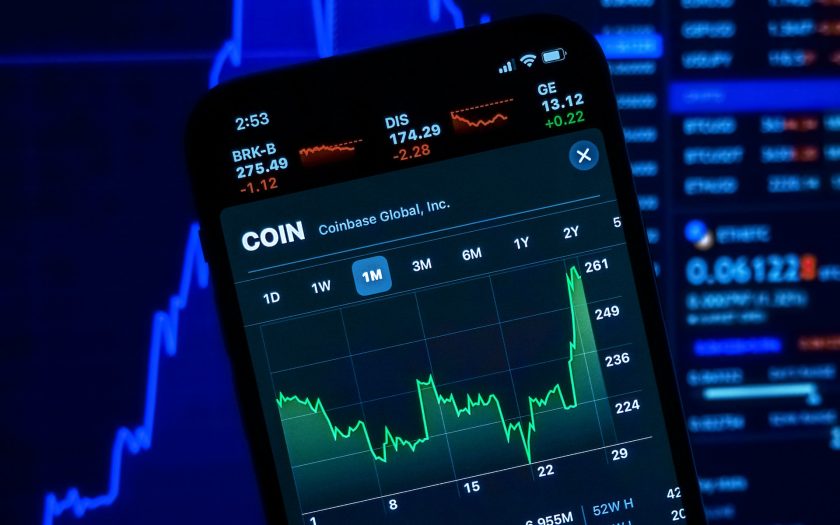
Ayesha Rascoe
David Gura
It was nothing but sunny days for crypto at this time last year – But those days are long gone and with one of the world’s biggest crypto exchanges filing for bankruptcy on Friday.
AYESHA RASCOE, HOST:
The crypto market was hot just a year ago. Not anymore – bitcoin’s value has plummeted, and now there’s been a possible hack of one of the largest crypto companies, FTX, which just filed for bankruptcy. NPR’s David Gura joins us now to talk about this crypto winter. Good morning, David.
DAVID GURA, BYLINE: Morning, Ayesha.
RASCOE: OK, so this is a lot going on. Like, what does this all mean for investors?
GURA: Well, nothing good, and it’s getting worse. The company’s new CEO is saying there was unauthorized access to assets on the site. The collapse of FTX plunged us even deeper into what’s being characterized as a crypto winter, this deep downturn. And it all happened very quickly. It was a fast and startling fall for a company that was really a central part of the crypto ecosystem. FTX built this huge platform for trading cryptocurrencies, including bitcoin, recently valued at more than $30 billion. Sam Bankman-Fried started it, built it into this behemoth. I’ll note he also amassed a huge personal fortune. Well, about a week ago, one of Bankman-Fried’s rivals raised questions about FTX’s finances, then publicly withdrew his assets from the site. That caused alarm, caused panic. Others tried to pull their money out, but FTX couldn’t pay its customers what they were owed. So now Bankman-Fried is out of a job, and FTX has filed for bankruptcy protection and brought in this new CEO.
RASCOE: What does this mean for crypto more broadly?
GURA: Well, in that short period of time, the value of bitcoin fell by about 20%. FTX is the latest domino to fall, but the biggest one. There’s been a series of crypto companies that have gone bankrupt this year. Some well-known cryptocurrencies have lost almost all their value. This compounds that. Joseph Grundfest used to be an SEC commissioner and now he’s a professor of law and business at Stanford.
JOSEPH GRUNDFEST: I think you’re headed towards a crypto ice age. It’s going to be difficult for the sector to regain confidence. You’re going to need much more transparency.
GURA: FTX was a private company. So we didn’t have a whole lot of insight into its books. And by design, crypto exists outside the traditional banking system, so there’s no lender of last resort if something goes haywire. Now, Grundfest says we’ve seen some transparency from the heads of crypto companies when it comes to code. They’re willing to pull back the curtain a little bit and explain how their products work. But what we can’t see or we don’t have a good sense of, Ayesha, is whether they’re legit. Are they run like other financial firms that deal with billions of investors’ dollars?
RASCOE: That seems like a big deal. How did we get here? Weren’t we all just seeing all these crypto commercials during the last Super Bowl for bitcoin and dogecoin?
GURA: Yeah, and that was all by design. Companies like FTX were spending millions of dollars on marketing – buying ads, but also signing endorsement deals. FTX bought the naming rights for the basketball arena in Miami. Another crypto company bought the naming rights for the basketball arena in Los Angeles. There was a lot of euphoria around crypto, but you have to remember, at the beginning of the year, most of us were feeling pretty good about the economy. And it wasn’t just cryptocurrency that was trading at or near record highs – so were stocks. Of course, all that changed with the persistence of high inflation, and as the Fed Reserve started hiking interest rates to get that under control. For so long, bitcoin backers said that cryptocurrency would be an inflation hedge, an asset that would go up in value during a period of high inflation. In fact, that hasn’t been the case. The value of cryptocurrencies, which are pretty tightly correlated with each other, have fallen alongside other speculative assets like tech stocks. Right now, amid concern about a potential recession, investors just don’t have much of an appetite for taking risk.
RASCOE: So when is this crypto winter likely to end?
GURA: None of the experts I talked to know or would even hazard a guess. What they’re watching for, they said, is how the crypto market changes in light of FTX’s collapse. Joseph Ayoub is a digital asset strategist with Citigroup.
JOSEPH AYOUB: The last year has been quite damaging for the crypto industry, and I think it spells the need for a lot of changes.
GURA: Ayoub and others emphasize crypto is still very young. We measure it in years, not in decades. But there’s been a conversation about regulation for most of its young life. So far, we haven’t seen Congress take action on comprehensive legislation calling for more crypto regulation. We’ve seen regulators use their enforcement power to crack down on bad actors. But Ayesha, this could be the event that opens the door to new regulatory policy.
RASCOE: NPR’s David Gura, thank you so much.
GURA: Thank you.
Copyright © 2022 NPR. All rights reserved. Visit our website terms of use and permissions pages at www.npr.org for further information.
NPR transcripts are created on a rush deadline by an NPR contractor. This text may not be in its final form and may be updated or revised in the future. Accuracy and availability may vary. The authoritative record of NPR’s programming is the audio record.
Sponsor Message
Become an NPR sponsor
 How To Make Huge Profits In A Short Time With Crypto
How To Make Huge Profits In A Short Time With CryptoGet detailed training system that shows an absolute beginner (without any skill) how to make huge profits in a short time with crypto.
 Crypto + NFT Quick Start Course
Crypto + NFT Quick Start CourseThe #1 course for profit in the Crypto & NFT world - You will discover the secrets that 99% of people don’t know yet





